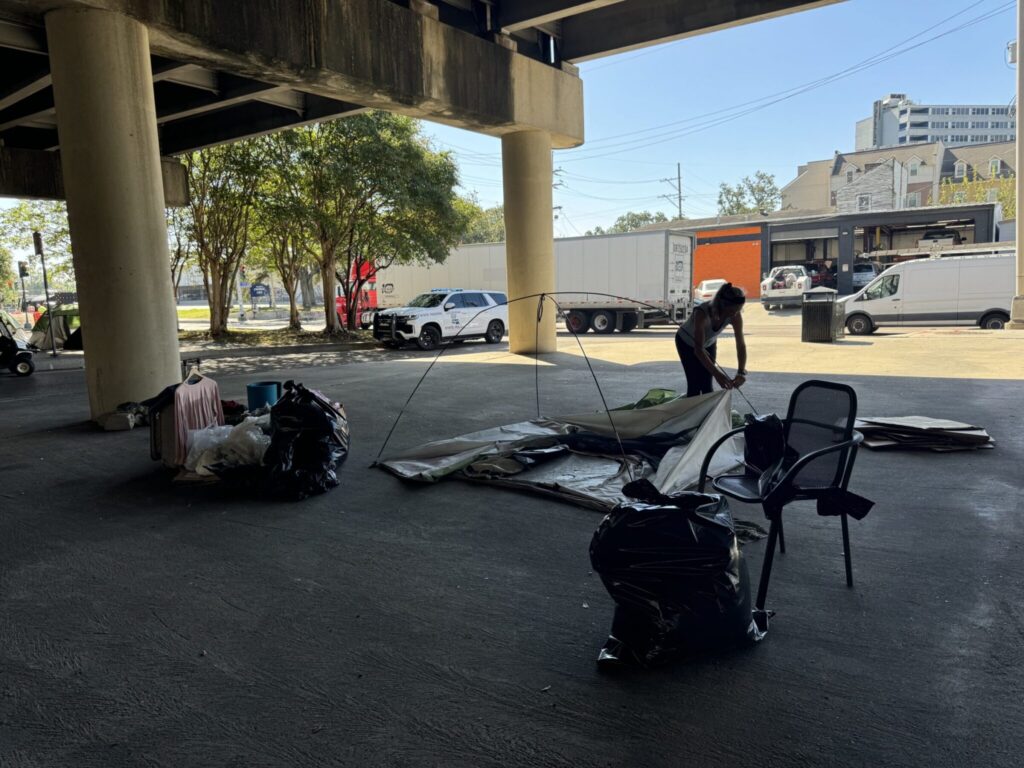Following an abrupt and unilateral decision by state authorities to clear homeless encampments in New Orleans, a growing concern regarding the operational relationship between city police and state troopers has emerged. City Council member Harris highlighted this issue during a recent budget hearing, which was attended by NOPD Superintendent Anne Kirkpatrick. She confirmed that there was no formal written agreement between the New Orleans Police Department (NOPD) and the Louisiana State Police regarding Troop NOLA, the contingent of state troopers that began operating in the city in early 2024 under Governor Jeff Landry’s directive. This lack of agreement became particularly contentious following Troop NOLA’s operation to dismantle encampments on the eve of significant concerts in the city, prompting questions from council members on the adequacy of communication and coordination between the two agencies.
Harris pressed Kirkpatrick about the absence of a written agreement that could govern the activities of Troop NOLA, pointing out the necessity of having clear guidelines, especially with major events like the Super Bowl on the horizon. Kirkpatrick attributed the lack of a formal contract to legal considerations, indicating a need for further evaluation by attorneys. Harris expressed concern that without clear authority and responsibilities spelled out, the city could face complications in ensuring the humane treatment of individuals experiencing homelessness and negotiate properly with state agencies.
The operation to clear the homeless encampments was executed over two days and included assistance from various state agencies, contrasting with the wishes of local city officials. They argued that the actions undermined long-term plans to support homeless residents in transitioning to stable housing. The situation escalated when a temporary restraining order was issued by a judge, halting the sweeps in response to a lawsuit filed by affected unhoused individuals. Despite the legal pushback, Troop NOLA’s operations have raised concerns about the state’s autonomy in conducting potentially contentious actions without local input or oversight.
Historical context reveals that a cooperative endeavor agreement (CEA) was previously established during the administration of former Mayor Mitch Landrieu, which delineated the operational scope of state troopers in the city. Such an agreement provided NOPD with some degree of control over patrol strategies and assignments. However, the absence of a comparable governing document during the current circumstances has led local community advocates, like Bruce Reilly from Voters Organized to Educate, to worry about the implications of state authorities unfettered by local oversight, particularly given ongoing federal civil rights scrutiny of the State Police.
The council meeting on Monday delved deeper into the ramifications of state involvement in local law enforcement activities. Orleans Parish District Attorney Jason Williams acknowledged the complexities arising from collaborations with both Troop NOLA and the Attorney General’s office, mentioning issues that sometimes arose from a lack of clear coordination. The dialogue reflects a broader unease among city officials regarding the influence of state troopers on local law enforcement operations and community relations, particularly within marginalized groups.
In light of recent events, City Council member Harris emphasized the urgency of framing a formal Memorandum of Understanding (MOU) between the NOPD and Troop NOLA to ensure an actionable framework is established before future major events. Besides addressing the legal and procedural gaps, she is working with local organizations to assist those displaced by the encampment sweeps, aiming to connect them with resources for stable housing. As Harris prepares to engage with the Governor’s office to address the aftermath of the sweeps, the need for a clearer and more humane approach to handling homelessness in New Orleans remains a pressing concern amidst local, state, and national discussions on governance and civil rights.

